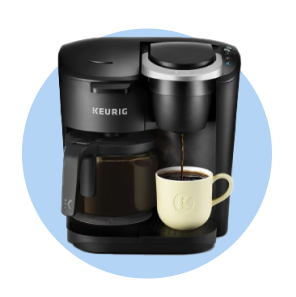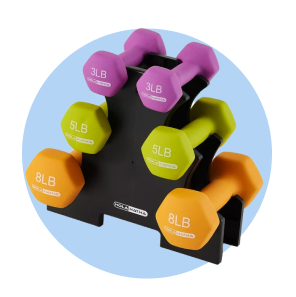
Small Business Security Software: 5 Things to Know Before You Buy
Each business needs unique protections
Running a business can be a challenge, and cybercriminals aren’t making it any easier. Almost 73% of small companies were targeted in 2023 alone and the FCC reports that data theft cases now surpass physical product theft. Thankfully, business owners can implement small business security software to protect their networks without straining their budgets.
Let’s take a closer look at the factors business owners and decision-makers should keep in mind before investing.

What do owners need from small business security software?
Complete malware protection
Antivirus software products are typically what come to mind when it comes to cybersecurity. In practice, computer viruses are just one type of malware—there’s also spyware, ransomware, botware attacks and more. The field is constantly changing as attackers discover new vulnerabilities, which means security experts are always working on new protections.
Security software with malware protection monitors networks and workstations to identify breaches and other suspicious activity. More importantly, it can execute automated actions that halt and isolate suspicious traffic in real time.
Data loss prevention
Now that data theft is a common challenge for modern companies, small businesses must give careful thought to prevention. Strategies such as firewalls, intrusion detection and network access management can make a big difference. These platforms can scan a network to detect potential vulnerabilities and recommend the most effective solution.
In some cases, data loss prevention tools also encompass backup tools. In a worst-case scenario—like a ransomware attack or unforeseen disaster—backups make it relatively easy to restore systems and daily operations.
Encryption
Encryption tools protect sensitive information by scrambling specific computer files to prevent unauthorized use. Only individuals with access to the encryption cipher can restore the data to an unscrambled state. If the worst occurs and a data breach happens, decryption keeps the damage to a minimum.

What to look for in security software for business
1. Data protection
First and foremost, the best security software for small business needs must address data protection. Simply storing a file on a hard drive and calling it a day isn’t enough—go a few steps further and ask questions like:
- How does the software block unauthorized access?
- Can employees access the system remotely?
- Are files stored on a local server or the cloud?
- How often will we need to make backups?
2. Compliance requirements
One of the best data precautions any business owner can take is ensuring their organization meets all compliance requirements. That’s why owners should prioritize platforms that provide regulatory tools for their field. Software recommended by industry associations is usually a good starting point.
Depending on the industry, data compliance can be comprehensive—even a small pharmacy must follow the same customer protections as a hospital. Finding a platform that makes compliance a priority makes it easier to adhere to regulations and keep data safe.
3. Scalability
You may be shopping for small business security software today, but what happens when your business grows? As you take on new employees and customers, the demands on your system increase—along with the dangers that a breach will cause.
Security software addresses scalability by looking at horizontal and vertical techniques:
- Horizontal scaling considers additional resources that a platform must extend to cover, such as new computers or servers.
- Vertical scaling helps businesses unlock additional capabilities from existing resources. In cybersecurity, this might include software updates that help identify newly-discovered threats.
4. User-friendliness
It can be difficult for any small business to commit resources to cybersecurity even knowing the risks. Companies might need to grow before they can hire dedicated IT professionals. That’s why it’s vital to choose security software that does the heavy lifting for you.
Pay special attention to security software that highlights user-friendliness. Tutorials and onboarding support are excellent examples that help bring all employees up to speed. Meanwhile, automated reporting tools can produce detailed summaries on malicious behavior. Finally, prioritize platforms with accessible customer support tools that help frontline staff quickly get the assistance they need.
5. Budgets
At the end of the day, security software is an investment and owners must budget for the expense. On average, most companies dedicate at least 12% of their IT budgets to cybersecurity. That figure will vary based on compliance needs and how sensitive records are.
Owners should also consider security expenses beyond the platform itself. Security experts typically recommend an initial risk assessment alongside full cybersecurity training for employees. Also, don’t overlook cyberattack insurance policies that keep your business financially secure after a disaster.
Empower your organization with Walmart Business
Cybersecurity is just one obstacle that business owners navigate each day, but they don’t need to do it alone. At Walmart Business, we empower small businesses and nonprofits with resources that save time and money—freeing them to focus on their goals. Sign up for a free account at Walmart Business today to enjoy benefits ranging from tech services to protection plans. Already a member? Upgrade to a Walmart Business+ account and you can save over $500 per year.1


Limited-time offer
Unlock your special promo code
Stay informed on Walmart Business news & get $20 off a $100 purchase!1
1Minimum order of $100. Promo code can be used one time & may not be combined with other offers. Offer not transferable & void where prohibited by law. Customer responsible for all applicable taxes. Offer expires 12/31/2025 at 11:59pm PT. Further restrictions apply. See terms at checkout for details. Promo code offers available in limited quantities. While supplies last.
1Savings based on 1 free $35+ delivery order vs. $9.95 fee and 1 free shipping order under $35 vs. $6.99 fee biweekly, plus 2% Walmart Business rewards on monthly order >$250 (average value of $400).
Exciting news awaits
Hear firsthand about new products, features & promotions.
By clicking submit, you agree to receive emails about Walmart Business and acknowledge you have read and agreed to our Terms of use and Privacy Policy.










